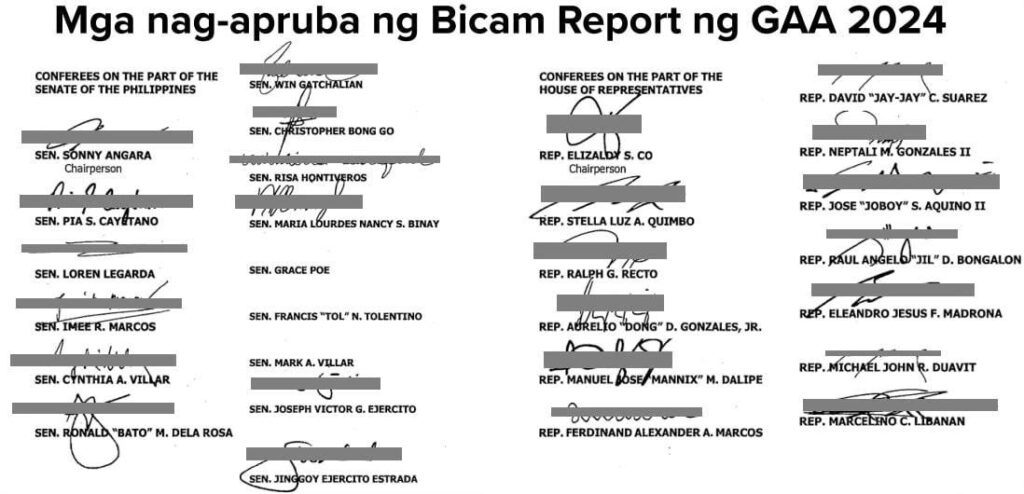Strange but true. Reuters broke the story about the disinformation network established, financed and operated by the Duterte camp to promote bogus stories on the March 11, 2025 arrest of the unlamented ex-president Rodrigo Duterte and his luxurious flight to face the Pre-Trial Chamber 1 of the International Criminal Court (ICC) in The Hague.
Released on April 11, the story written by Poppy McPherson in Bangkok with additional reporting by Karen Lema in Manila, cites the findings of Israel-based Cyabra CEO Dan Brahmy that on-third of the X accounts praising Duterte were fake but these fake accounts generate up to 54 million views, and could potentially shape the election discourse, as what Cambridge Analytica earlier did to refurbish the image of Ferdinand Marcos Jr. and Rodrigo Duterte.
Cyabra stressed that the Duterte network is sophisticated and well-oiled. Of 2,154 profiles examined by the Israeli firm between January 1 and March 10, 37% were fake. On the other hand, of the 3,033 profiles supporting the Marcos Jr.-backed Alyansa para sa Bagong Pilipino (ABP), Cyabra said 45% were fake. The profiles were “strategically connected to amplify each other’s content,” Brahmy explained, manufacturing the “illusion of broad public support or opposition” but added that there were coordinated bursts of engagement and posting at frequencies not humanly possible.
Many fake profiles interacted with real accounts, allowing them to “blend seamlessly into discussions,” engaging with journalists, taking part in debates and reacting in real-time, Cyabra said. “If you’re just scrolling, there’s no obvious giveaway – they’re built to blend in.” Another study, also seen by Reuters showed that inauthentic accounts, including sock puppets, avatars, and bots, have driven up to 45% of discussions about the elections. Brahmy warned that what is happening in the Philippines is not just a disinformation spike but digital warfare.
“These fake networks didn’t just show up – they shaped the conversation,” Brahmy said and noted that election-related accounts could garner around 54 million views. “And if it’s happening this visibly in the Philippines, it’s naive to think it’s not happening elsewhere too.” The firm said it did not trace the origins of the fake accounts, though it was likely a single source. Brahmy noted that the level of coordinated disinformation in the Philippines was much higher than the typical range between 7% and 10% in global online conversations about “highly sensitive or polarizing” issues.
Cyabra, which uses artificial intelligence (AI) to identify fake accounts through behavioral signals, analyzed 1,890 profiles that generated more than 5,500 posts and comments on X about Duterte’s arrest. About a third were fake, responsible for more than 1,300 posts generating more than 7,000 engagements, including likes, comments and shares, potentially reaching more than 11.8 million views, the company said. Apart from the disinformation network, Duterte might as well be responsible for the spate of recent surveys that suddenly saw Duterte Senate bets surge after the unlamented ex-president’s ICC arrest. Duterte aide and reelectionist Senator Bong Go takes solo first in the March 2025 preference surveys, and surprise of all surprises, fellow reelectionist Ronald de la Rosa zoomed ahead to tie Rep. Erwin Tulfo for second and third.
Another survey firm carried a similar result. Philip Salvador came from nowhere to be within striking distance for the Senate “dirty dozen,” surpassed by comedian and TV Willie Revillame noted for the Ultra “Wowwowin” stampede that killed dozens, and even Sagip Rep. Rodante Marcoleta, much-criticized for inserting himself in quadcomm hearings at the House of Representatives. Marcoleta, a member of the Iglesia Ni Cristo (INC), was also slammed over his demand that crosses be removed from public schools and government offices. Christians comprise 85% of the entire Philippine population, and they will remember Marcoleta for his religious intolerance.
Do these surveys pass the smell test? Hardly, especially now that algorithms can be changed (for which Elon Musk is notorious) to reflect what those who commissioned the survey want. Then, these survey companies can always rely on their tracking survey “suki” respondents to favor their sponsors. To save on expenses, survey firms do not change the composition of their respondents and it is not even feasible for interviewers to spend 40 minutes or more per respondent on face-to-face interviews. The obvious resort? Curbstoning, defined as the intentional fabrication of survey data by information collectors to meet their targets or earn higher pay. This is different from “curb stoning,” or the selling of stolen or hot cars, purportedly a former sideline of a notorious senatorial candidate. (DIEGO MORRA)




